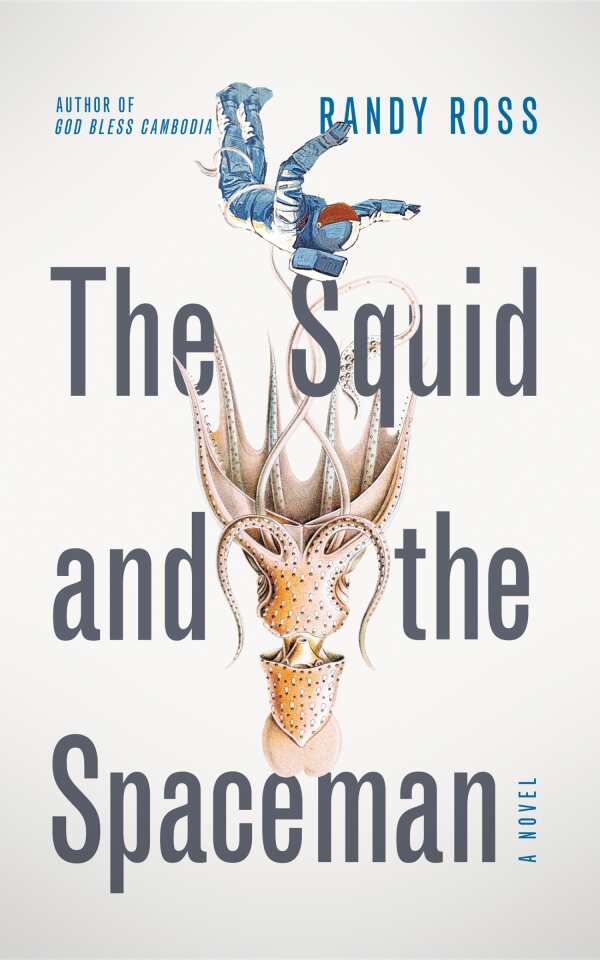
The Squid and the Spaceman
A lively and distinctive cast invigorates this biting novel about a midlife, never-married comedian navigating another chance at love.
Snappy and obscene, Randy Ross’s novel The Squid and the Spaceman lays out the wonders and woes of dating in middle age.
Randall is a fifty-six-year-old bachelor whose days begin with the systematic arrangement of his bathroom cabinet’s contents. He’s a man of habit—perhaps one source of tension in his romantic endeavors. He’s also a solo comedic performer; his show, The Chronic Single’s Handbook, requires multihour rehearsals. But despite this orderliness, Randall has a problem: he doesn’t want to die alone.
When Randall meets Jackie, a three-time divorcée with a crass sense of humor and no boundaries, he thinks he may have found the one. The story becomes more animated thereafter, moving through the stimulating beginnings of their relationship. But after the initial charm of caustic remarks, movie theater make-out sessions, and casual overnight antics wears off, Randall questions anew if he’ll ever be cut out for marriage.
Randall’s relationship with Jackie may be at the center of the story, but its secondary characters function as its backbone. Lively and distinct, they do their part in contributing to the richness and absurdity of Randall’s world. Randall’s cousin Joey and friends Abe and Lenny emphasize the importance of platonic relationships without getting sentimental; his ex-girlfriend Rikki and stepsister Harriet provide context; and his therapists Moody and Byrnes act as antagonistic forces, pressuring Randall (in a gentle yet candid way, of course) to confront his anxieties and the truth of why he’s unable to commit to marriage. Jackie, perhaps, ends up being the least understood character. Randall’s bewilderment at her conflicting behaviors becomes more apparent as their time spent together increases, and that uncertainty is never resolved, further reinforcing the complexities of entering into a new relationship.
The mode of comedy deployed throughout is sarcastic and designed to offend. Nothing and no one is safe from Randall’s biting observations and internal monologue, with politically correct policies, millennials, and even Jackie among the many subjects that Randall targets. Still, though Randall’s criticisms are in no short supply, they somehow add to his charisma—perhaps because he’s also incisive when it comes to naming his own flaws. A hero with germaphobic tendencies and problematic attractions to “intense, unconventional women” who disappoint and anger him “when they act out,” he engages interest throughout.
Balancing self-aware insights, therapy sessions, and uncensored group texts, The Squid and the Spaceman is a comedic novel in which a man’s life is messy and uncertain—but also perhaps just as it should be.
Reviewed by
Cierra Taylor
Disclosure: This article is not an endorsement, but a review. The publisher of this book provided free copies of the book and paid a small fee to have their book reviewed by a professional reviewer. Foreword Reviews and Clarion Reviews make no guarantee that the publisher will receive a positive review. Foreword Magazine, Inc. is disclosing this in accordance with the Federal Trade Commission’s 16 CFR, Part 255.
